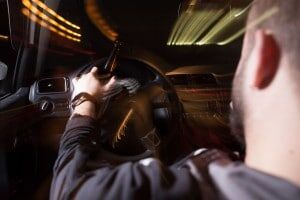Correcting the Record on Drunk Driving and Car Accidents
 The Delaware car accident attorneys at Silverman, McDonald & Friedman have helped hundreds of our citizens who have been injured by drunk drivers and others who have driven recklessly. We work with clients out of our Newark, Seaford, Newark, and Wilmington offices.
The Delaware car accident attorneys at Silverman, McDonald & Friedman have helped hundreds of our citizens who have been injured by drunk drivers and others who have driven recklessly. We work with clients out of our Newark, Seaford, Newark, and Wilmington offices.
There are a lot of myths surrounding drunk driving. Perhaps you’ve met someone who claims to have “beaten” the breath test by sucking on pennies, or eating an onion. Perhaps you’ve heard that law enforcement can’t ask you to do the walk-and-turn test unless there’s a line on the ground to follow. Today, we look at some of the more common – and incorrect – beliefs surrounding drunk driving in Delaware.
Drunk driving myths you shouldn’t buy into
Police don’t patrol backroads
People often think that if they stick to backroads and suburban areas, that police won’t catch them driving drunk. For the record, police who are assigned to these areas know those roads well and are aware that people attempt to use them to evade being caught. But that doesn’t stop drunk drivers from using them, which can put you at risk of an accident if you are coming home late at night.
It’s only illegal to drive with a BAC of 0.08 or more
First, know that it’s illegal to drive with ANY blood alcohol content (BAC); a person who blows a 0.03 can still be ticketed and lose his or her license even if he or she is below the 0.08 threshold.
Second, alcohol affects everyone differently. A man who’s 6’4” and 230 pounds can be severely affected by two drinks while a woman half his size can have three drinks and seem virtually unaffected, and both individuals may blow under the legal limit. You should always avoid getting into a car with someone who has been drinking, because it’s better to be safe than sorry.
A cup of coffee will sober up a drunk driver
Nothing will reduce a person’s BAC other than time. Food won’t absorb the alcohol, a run won’t cause a person to sweat out the alcohol, and coffee or a cold shower won’t jolt a person out of it. On average, it takes an hour for a body to process a shot of liquor (anywhere between 1 and 1.5 oz), and about 90 minutes for a 12 oz bottle of beer. However, these numbers vary wildly based on the person’s size, sex, age, weight, and other factors.
Drunk drivers survive car crashes more often
Studies have been conducted about this particular myth, which is mostly false. In one study, researchers found that patients with severe injuries, including brain trauma, were actually more likely to survive a crash if they were drunk at the time.
However, the same study concluded that being drunk behind the wheel did not prevent serious injuries, nor did it shorten any hospital stays.
Other common myths about car crashes in Delaware
Not all car accident myths are alcohol-related. Here are a few we’ve heard in our time as injury lawyers.
Reporting auto accidents is optional in Delaware
When you are involved in a car accident and can’t tell whether you have injuries or whether your vehicle is damaged, you are not required to report the accident. However, Delaware Code § 4201 mandates that if there is apparent damage to a vehicle and/or a person is injured, the accident must be reported to the police. If an accident results in vehicle damage only, the drivers are not required to remain at the scene but must immediately report the accident to the proper police department.
You don’t have to exchange information for minor accidents
Low-impact crashes can lead to injuries that become apparent hours or even days later, requiring medical treatment. Drivers should exchange names, addresses, vehicle registration numbers, present your driver’s license, and insurance information. Failure to exchange information can result in a six month suspension of your driving privileges.
Wearing a seat belt is more dangerous than not wearing one
In Delaware, wearing a seat belt is the law and it goes for everyone inside the vehicle. You may believe that wearing one will put you at higher risk, but it saves at least 15,000 lives each year. Does this mean you won’t suffer injuries from wearing one in an accident? Absolutely not, but you’re more likely to survive to tell the tale.
My car accident case is clear, so it’s safe for me to talk to the insurance company
You may have an accident report that shows the other driver was fully at fault and once his or her insurance company sees that, you think that your claim will be smooth sailing. What’s to argue about? The fact is that insurance companies don’t want to pay out and will try a number of tactics to avoid it or limit your claim. They may try to take a recorded statement and put you on the spot by asking questions intended to place liability back in your court, especially if their insured was impaired. Claims adjusters may delay processing your claim in the hope that you’ll become frustrated and settle for a much lower amount than you should receive based on your damages.
Drunk driving victims deserve the ability to reclaim their lives. At Silverman, McDonald & Friedman, our Delaware drunk driving injury attorneys remain trial-ready to advocate for your rights when the insurance company won’t make you whole. To schedule your free case evaluation in our Newark, Seaford, Newark, or Wilmington office, call 302-888-2900, or reach out to us through our contact page.
Related Content:
- The Hidden Costs of Car Accidents
-
Women Face Greater Risk of Injury in a Car Accident Than Men, IIHS Says
- Medical Tests after You Are Injured in a Car Accident
Attorney Jeffrey S. Friedman joined Silverman, McDonald & Friedman in 2001. He graduated from Widener University School of Law, and is admitted to practice law in Delaware and Pennsylvania, and in several Federal Circuit courts. He areas of concentration include auto accident and workers’ compensation cases. Read more about Attorney Friedman here.

